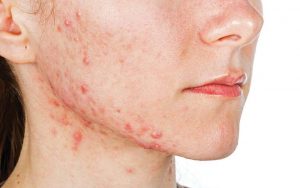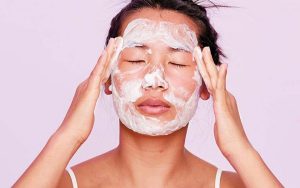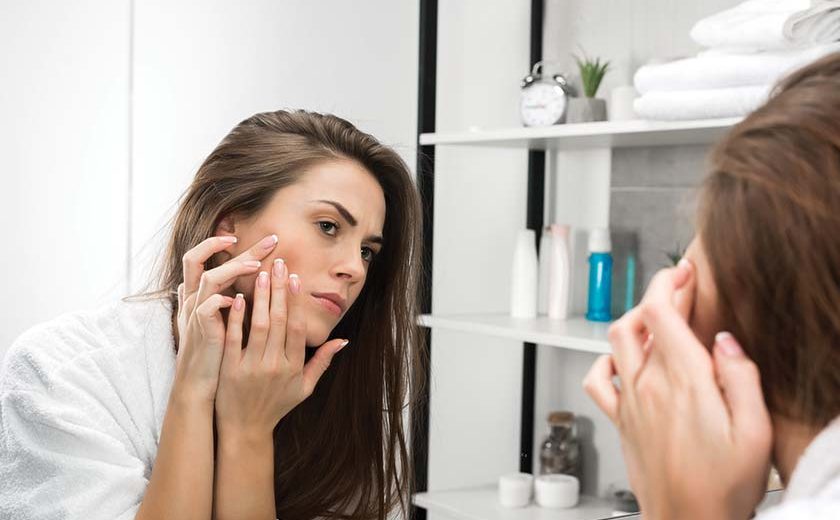… as in why didn’t they just leave during your teenage years? How come they’re still here, plaquing your adult life as well? Let’s see how to deal with this, shall we?
It can be upsetting to wake up in the mornings during your adulthood to a complexion marred by blemishes such as pimples or acne which should have been a thing of the past. You’re not alone, for many other adults out there are dealing with the same dilemma – blemishes that ruin an otherwise healthy-looking skin. For some people, acne may be even worse in adulthood than during their adolescence.
It’s a notable fact that acne can greatly affect your quality of life, no matter what your age or the severity of your condition. If you are battling recurring skin breakouts, finding a path to clearer skin can help improve your self-esteem and body image.
There is no single cause of acne, and because of this, there is no surefire way to avoid it or control it. The worst part is, it’s not just a person’s face that may be affected, but the back, shoulders, neck, chest, limbs… or practically anywhere else in the body, may also be riddled with this unsightly breakouts too. ‘
What Can You Do About It?
Acne is believed to be influenced by several factors, such as genetics, an underlying health condition, etc. You can still ease the situation though, by treating your skin in certain ways that will minimise breakouts. In other words, your skincare may play an important role in managing your acne breakouts.
With a little know-how, you can minimize or potentially eliminate occasional acne outbreaks not just on your face, but anywhere else that they usually appear. The following changes in your skincare routine may make a difference in your life.
Go non- comedogenic on your hair and skin products
Do you use any of the following?
- Hair conditioners
- Hair gels
- Pomades
- Skin moisturisers
- Sunscreens
- Shaving products
- …other products that contain oil that can clog your pores and cause a breakout?
Simply switching to hair and skin products that don’t clog pores—called “non- comedogenic”—could make a big difference in the appearance of your skin.
Check the labels on your hair and skin products to see if they are marked noncomedogenic. Also, consider whether you truly need every product you use. Even products marked “dermatologist tested” can cause acne for some people.

Limit The Number Of Products You Apply On Your Face
Minimizing the number of products you use may help further reduce outbreaks. And when you exercise, wear as little makeup as possible. Even oil-free and noncomedogenic cosmetics can clog pores if worn during heavy, sweaty exercise.
Hands-Off That Face!
That includes mindless touching and picking on your face. Also, do you often rest your chin or cheeks in your hands? How about habitually rubbing your nose? All these behaviours can encourage the growth of bacteria and cause infection to the areas most inflamed by adult acne.
Adopt a strict hands-off habit when it comes to your face, and it includes trying to press out a pimple too. Picking or squeezing can drive acne bacteria deeper into the skin, leading to more inflammation and possibly to permanent scarring. So, once and for all, do away with this habit.
Sweat Is Good, But Don’t Leave It For Long
Rinse off as soon as possible after you work out. Physical activity heats up the body, causing perspiration to mix with surface skin oils. Together, they trap substances in your pores. If a quick rinse isn’t possible, towel off and change into dry clothes as soon as you can. Sitting around in sweaty clothes, especially if they are tight-fitting, can lead to acne on your chest, back, and other parts of the body.
Ease Up On The Washing And Do Away With Harsh Scrubs
Acne is not caused by dirt, so washing frequently with harsh substances such as alcohol-based products won’t solve the problem. In fact, it may make the situation worse by prompting excess oil production and more blemishes. Be good to your skin by washing gently from under the jaw to the hairline with a mild soap once or twice a day. You might find that simply washing with lukewarm water and using clean hands rather than a washcloth may actually work better for you. To avoid irritating or inflaming your skin, pat, rather than rub it dry with a soft towel.
Note: Be extra cautious when it comes to cleansing products that claim to be formulated for acne prone skin, as these can leave healthy skin dry and irritated.

Be cool and stop stressing about it
When you’re under stress, your body produces stress hormones, such as cortisol, which can stimulate an overproduction of oil from the sebaceous glands in the skin. When this excess oil mixes with dead skin cells and bacteria, it can cause acne to develop or become worse. If you regularly suffer from stress, try to take short breaks throughout the day to stretch and practice deep breathing. Exercising regularly is another great way to ease anxiety and reduce stress.
Keep things simple
While there is no cure for acne, most mild breakouts can be controlled with proper skin and body care. Start by focusing on the basic strategies mentioned here, keeping in mind that when it comes to skin care, simplicity is often the best solution.
Keep up these healthy habits for a month or two, and if you still don’t see any results, there may be other factors causing your skin to break out, such as:
- Hormonal changes (e.g., menstrual cycle, pregnancy, or starting /stopping birth control pills)
- Medication side effects
- Allergic reactions to foods or cosmetics
- Genetics
Get medical advice
Talk to your healthcare provider or dermatologist about your skin condition and treatment options. You’re bound to find a solution that’s suitable for you.


